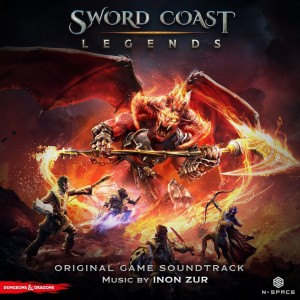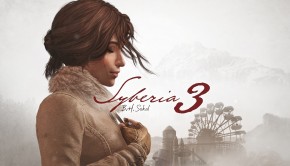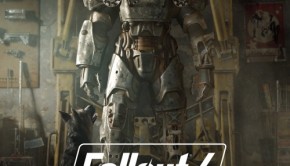Sword Coast Legends Original Game Soundtrack
 |
Album Title: Sword Coast Legends Original Game Soundtrack |
| Record Label: n-Space Music |
|
| Catalog No.: N/A |
|
| Release Date: October 20, 2015 |
|
| Purchase: Purchase on Amazon |
Overview
Sword Coast Legends did not receive a particularly positive response, but the same can hardly be said for its music. Composer Inon Zur brought his talents to compose the score to the Dungeons-and-Dragons-styled game, along with the City of Prague Philharmonic Orchestra and singers Aeralie Brighton and Mimi Page. While the opportunities granted by such high-quality resources might be lost on some composers, Zur unquestionably took full advantage of them while composing for Sword Coast Legends to produce an equally high-quality score.
Body
The album opens with “The Fury of Dawn” a low celtic pipe plays a few melodic turns and leads into a stately brass march. Its variations are expected; the melody goes from brass to strings with a few choral accents and then breaks for a pipe and harp duet. I enjoyed the delicate moment, which is fleeting – soon the brass picks back up with an answering melody and takes over. The instrumentation is quite enjoyable, although the piece as a whole does its job of being an introductory piece almost too well – as sweeping and grand as it is, it is quickly forgotten once it’s over.
“Laduguer’s Anvil,” the second track on the album, opens strongly, with a powerful metallic drumbeat that leads a heavily accented rhythm. The melody is all quarter notes and eighth notes (with the occasional dotted quarter and half), emphasizing the rhythm even more. The melody alternates between low brass and a low male chorus. Everything about this piece is triumphant, heroic, practically muscular, completely abandoning subtlety in favor of power. All this effort would be wasted if the melody was anything less than inspiring; however, Zur succeeds in creating a melody that is both epic and memorable – a rare combination in the slew of Shore-inspired score that have been released in the last ten years. Overall, I saw “Laduguer’s Anvil “as the true opener to this soundtrack, instead of the Main Theme, as it makes a much stronger statement and is, in some ways, more indicative of the rest of the soundtrack.
On the whole, Sword Coast Legends is a heavy score. Zur is aiming for epic, and he achieves it. “Holding the Line” is an antagonist’s theme, twisting into chromatic patterns to enforce a sinister nature. A theme that later shows up in “Victory is Ours” threads its way through the track as well, a triumphant burst of dotted notes, but they are masked by the falling notes – at one point, the two themes are played simultaneously. Ultimately, the piece ends with the victory theme, but with an uncertain final note. “Avenge the Fallen” features an onslaught of orchestral instruments, barely held back at first by a brassy melody, that seems to charge forward with its intensity. It would be marchlike if it weren’t so dependent on the strings and vocals for subdivisions and harmonic support.
“Turning the Tide” opens with a swirling mass of strings that are broken by a now-familiar brass entrance. The melody itself is unfamiliar, but the style of the piece is; however, that style has not yet grown tedious to the listener. Zur manages to make each iteration of his “epic” track relatively successful, some more so than others, but at no point do I feel as though I’m listening to the same track on repeat. “Call to Battle” sounds like a fanfare with a cleanly orchestrated ensemble of brass instruments within the orchestra, that break into a gentler string section. Strings are further incorporated into tracks like “Redemption,” which sounds almost like a hero’s love theme in the game – despite the softer instrumentation, it still swells in intensity like the other tracks on the score, but through a different set of instruments. The strings continue rising in octave and dynamic, and the piece barely reaches the halfway mark before a few warm horns join in with the melody. By the end, most of the brass are back in the piece.
Not all of the tracks follow the trend of the score. “City of Sails” features a tender violin and melody that lightly skims across each note. The accompanying chords come through a generic set of strings and a beautiful harp that delicately plucks each note, subdividing the melody into broken chords and surfacing only as the melody pauses between phrases. Even when all the instruments are briefly paused, soft ambiguous chimes echo until the instruments resume, giving the impression of chimes or bells on the wind. “The High Road” is less ethereal but no less delicate. Like many of the other tracks, it features a low pipe, brass, and the harp/strings combo, but this time they are accompanied by a piano that plays larger chord blocks, often in unison with a solo violin.
“Face Down in the Cutlass” sounds a bit minstrel-y, with a series of pipes and lutes and an accompanying tambourine. It’s a spritely little track, and reinforces the medieval-fantasy setting of the game. “Forlorn Cliffs” takes us to a more mystical place – the melody is almost nonexistent, just a few downward-spiraling notes. The instrumentation is a murky combination of vocals and strings that have an echoing effect, particularly given the repetitive nature of the tracks. The notes are constantly falling, with only quick moments to raise them enough to fall downwards again across different instruments, octaves, and dynamics. “Ruins of Illusk” has a similarly murky effect, but with a much lower octave and denser timbre.
Sword Coast Legends closes with “The Path of Destiny,” a closing ballad sung by Mimi Page, and written by Page, Zur, and Ian Nikus. Page uses her breathy voice to artfully juxtapose the onslaught of brass the listener has just been met with in the album. In contrast to the flashy, powerful tracks that have preceded “The Path of Destiny” Page offers a more thoughtful conclusion to the soundtrack. She is met with a drumset and a paced but active section of strings, and the track plays like a ballad at the end of some epic fantasy film – curiously uncharacteristic of the rest of the score, but not necessarily unwelcome. Indeed, the end credits song is a beautiful addition to Zur’s score.
Summary
Overall, Sword Coast Legends is a surprisingly wonderful score to a mediocre game. Zur’s themes are fresh and powerful, and he very effectively utilizes the high quality of the City of Prague Philharmonic Orchestra – one of my personal favorite ensembles, and an orchestra already established as a Hollywood asset – to bring out the fullness of each instrument. Brighton’s and Page’s vocals only add to the quality, and give it a more personal feel that the heroic themes alone don’t accomplish. The epic-style score – not to mention the fantasy score – has been overdone across games and movies, but Zur manages to keep his score original and engaging enough to merit a good amount of praise for his composition. Sword Coast Legends may be purchased for download on Amazon.
Do you agree with the review and score? Let us know in the comments below!
4.5
Posted on December 31, 2015 by Emily McMillan. Last modified on January 13, 2016.














